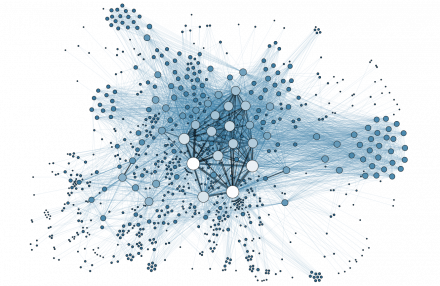Singleton Finder
Given a sorted array in which each element appears twice and only one element appears once. find that element.
# Time: O (log n)
#
# Input: [1, 1, 3, 3, 4, 5, 5, 7, 7, 8, 8]
# output: 4
#
def FindSingleton(A, l, r) :
if l > r:
return
if l == r:
return A[l]
# Find middle point
m = (l + r) // 2
if (m % 2) == 0:
if A[m] == A[m + 1]:
return FindSingleton(A, m + 2, r)
else:
return FindSingleton(A, l, m)
else:
if A[m] == A[m - 1]:
return FindSingleton(A, m + 1, r)
else:
return FindSingleton(A, l, m - 1)
Find an Extra Element
Given two arrays A and B of integers. The arrays are identical except that B has an extra element inserted at some index. (Thus |A|+ 1 = |B|.) Find the inserted value.
For example, if a = [1, 5, 2] and b = [1, 4, 5, 2] then a 4 was inserted.
A divide-and-conquer algorithm to find the extra element with complexity of O (log |A|):
# Time: O (log A)
#
def FindExtra(A, B, l, r):
# only 1 element
if (l == r) :
if(A[l] == B[l]):
return B[r+1]
else:
return B[r]
# Find middle point
m = (l + r) // 2
if(A[m] == B[m]):
# go right
return FindExtra(A, B, m+1, r)
else:
# (A[m] == B[m+1])
# target on the left, go left
return FindExtra(A, B, l, m)
Find Power Set
Given a set of characters, find the power set.
A power set should have sets where n is number of elements in the original set.
For example, the power set of {1, 2, 3} is {, {1}, {2}, {3}, {1, 2}, {1, 3}, {2, 3}, {1, 2, 3}}, which has 9 sets inside.
Since there are sets of elements, we need to loop at least
time, an algorithm using mechanism of binary number to filter out every subset can be done:
# Time: O (2^n x n)
#
def subsets(a_set):
length = len(a_set)
# number of subset is 2^length
# so 1 << length
# 1 << 2 = 100 = 4
for i in range(0, (1 << length)):
subset = set()
for j in range(0, length):
# 1010
# take 2nd, and 4th
# so 1 << 1 = 0010, and 1 << 3 = 1000
index = (i & (1 << j)) if(index > 0):
subset.add(a_set[j])
print(subset)
# Test:
subsets((1,2,3,4))
Print All Valid parenthesises
Print all valid parenthesis combinations given a number of set of parenthesis.
All parenthesis combination should be valid which means they can be applied to valid math calculation.
For example, combinations of 2 pair of parenthesis:
( )( )
( ( ) )
def printParenthesis(n):
# Embeded recursive fnc
def parenthesis(str, pos, n, open, close):
if(close == n):
for i in str:
print(i, end = "")
print()
return
else:
if(open > close):
str[pos] = ' )'
parenthesis(str, pos + 1, n,
open, close + 1)
if(open < n):
str[pos] = '( '
parenthesis(str, pos + 1, n, open + 1, close)
# Begin here:
if(n > 0):
str = [''] * 2 * n
parenthesis(str, 0, n, 0, 0)
# Test:
printParenthesis( 3 )
print()
printParenthesis( 4 )






